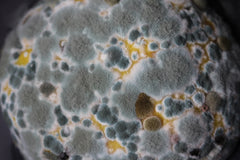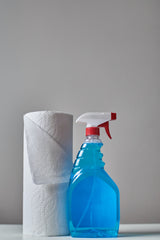 With industrial waste and the ever increasing amount of car emissions contaminating our air, it is easy to blame external air pollution for asthma issues. However, poor indoor air quality is now being pin pointed as having a huge impact on increased asthmatic problems as well. Here are a few ways the air inside your home can have an impact.
With industrial waste and the ever increasing amount of car emissions contaminating our air, it is easy to blame external air pollution for asthma issues. However, poor indoor air quality is now being pin pointed as having a huge impact on increased asthmatic problems as well. Here are a few ways the air inside your home can have an impact.
Secondhand Smoke

It is no secret that smoke is dangerous to the smoker, but to those around them there is also serious risk. Secondhand smoke places hundreds of poisons into the air including carbon monoxide and formaldehyde and can be instrumental in the development of asthma. Secondhand smoke affects the severity of attacks as well as the amount suffered by 200,000 plus children, with that number possibly being as high as a million. While being near a smoker who is currently puffing away is a large factor, being around a person who has smoked (but is not smoking at that particular moment) or in a room or household where smoking has happened is also a factor. The chemical residue that is left behind even after the cigarette is put out is still an asthmatic hazard.
Combustion Pollutants
Combustion pollutants are the byproduct of appliances that utilize fuel such as gas, coal or wood to operate. This includes water heaters, fireplaces, gas heaters and furnaces. Pollutants such as carbon monoxide and nitrogen dioxide can increase asthma issues by displacing the amount of oxygen that the body would otherwise receive. Maintenance and attention is needed for these appliances and a home monitoring system is helpful in signaling leaks or issues.
Radon
The natural breakdown of uranium found within soil, water, or rocks causes the radioactive gas known as radon to be released. Unfortunately, this natural gas can seep into a home through openings or cracks in its structure. When found in concentration, this pollutant can result in increased respiratory issues, including asthma. Unfortunately, it is not easily identifiable and an indoor air quality test is instrumental in locating issues.

Biological Pollutants
One of the biggest biological pollutants to keep watch for is mold, which can often result from having high humidity or areas covered with prolonged moisture in the household. If there is a crack in the structure, a leaky plumbing issue or flooding that was not properly taken care of, mold and bacteria can quickly set up shop and begin spreading, allowing dangerous spores to infiltrate your air and trigger allergic reactions and asthmatic episodes. Keep an eye out for any wet breeding grounds and keep potential trouble spots dry and well ventilated.
Other biological pollutants can include seasonal pollen, which can make its way in through open windows and doors, as well as dust mites or hidden excrement left behind from uninvited pests. Dander, which is lightweight and the result of shed skin cells or bodily fluids from pets and other animals, can also increase asthmatic attacks and affect the severity of them. Air filtration can assist in keeping biological pollutants to a minimum in your home.

Household Cleaners
Common household cleaners are often used in the hopes of removing triggers when, in fact, they can add pollutants to the air. Anti-bacterial mixtures, surface cleaners and furniture wipes are just a few of the perpetrators that leave dangerous chemicals behind that can irritate the respiratory system and result in inflammation of the bronchial tubes. Try instead to use more natural bases in your cleaning supplies such as vinegars, essential oils and other plant based items.
Building Supplies
Chemicals such as formaldehyde are often found in building supplies like adhesives and other agents used to bond materials such as carpets, paneling and upholstery. Formaldehyde can cause severe irritation triggering asthmatic episodes and increasing the number of attacks and severity over time. Check into the ingredients of building materials when doing any work on your home to avoid the inclusion of such items.
While it may not be possible to create a perfect indoor environment, it is possible to greatly reduce pollutants responsible for decreasing indoor air quality. Reducing these toxins can result in easier breathing for asthma sufferers.
Let us help you choose the proper air purifier for your needs. Our knowledgeable, friendly and honest customer service representatives are available to you 24 hours a day. Simply contact us or call 888.866.8862.




